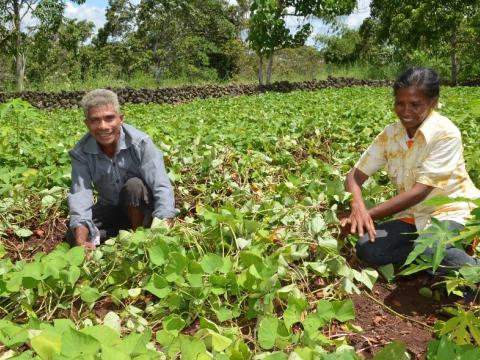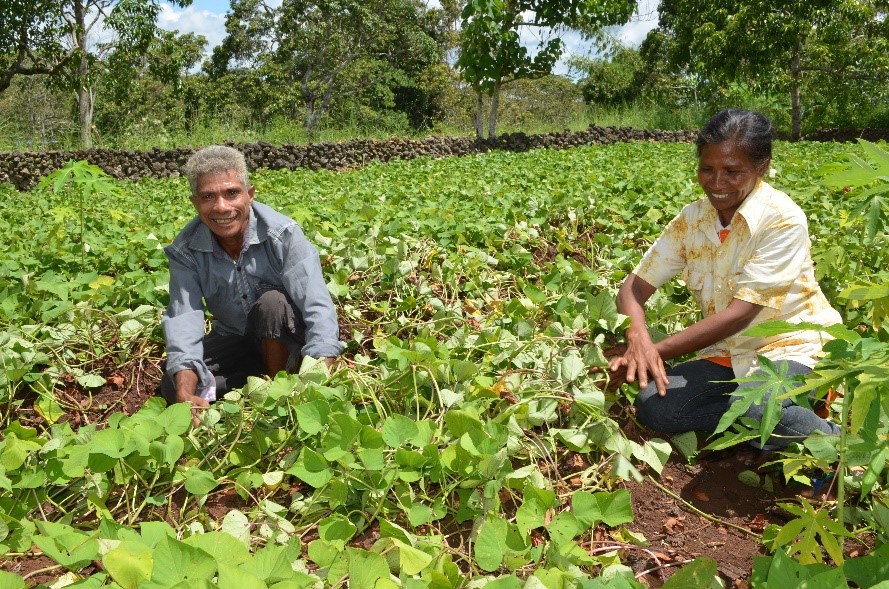Gaspar grows nutritious crops for his family

Gaspar, aged 55, his wife Recardina, aged 49, and their 10 children live in Baucau Municipality. Gaspar’s daily activities are growing vegetables and looking after the garden and paddy field.
Previously he applied traditional agricultural techniques, which yielded poor quality and quantity crops. This resulted in food shortages and deficient household nutrition. Lack of income also meant that he couldn’t afford his children’s education, so five of his 10 children were forced to drop out of school.
“I brought the vegetables to sell in the market but nobody bought them because of the quality compared to other people’s products. My estimated income every month was US$32, but sometimes it was less than that,” Gaspar said.
When World Vision starting working with his community through the World Vision-TOMAK Nutrition Sensitive Agriculture project, he decided to join the farmer’s group and attended several trainings on improved nutrition-sensitive agriculture methods, compost and germination. He was also connected with the market to sell his produce.
“As practiced, we produced a variety of crops such as red kidney beans, orange sweet potato, moringa, soybeans and mung beans in half a hectare per crop. Initially World Vision supported us with seeds, cuttings and other agriculture materials,” he said. The crops are a highly nutritious source of food for his family.
Gaspar (55, left) and his wife Recardina (49, right) grow nutritious crops in their kitchen garden. Photo: Ambrosio Alexandre / World Vision
“By applying the techniques I learned from World Vision I have already achieved good results from my hard work through the production and marketing of orange sweet potato. Instead of selling all, I keep enough quantity of the products for my family’s consumption. I am pleased to see my children and grandchildren eating more of the crop that we produced and they are happy to go to school as we can meet their basic needs,” he said.
“As I was learning and capable to apply all the new techniques, I can be a model for other farmers to possibly change their life as well,’’ he added.
The Nutrition Sensitive Agriculture project is implemented by World Vision in partnership with TOMAK Timor-Leste, and is funded by the Australian Government Department of Foreign Affairs and Trade (DFAT).
Share
